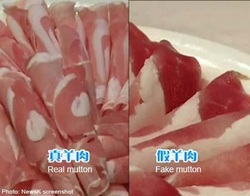
Today, millions of China's netizens are using microblogging services to raise awareness and bring transparency to 2 issues which threaten the Communist Party's legitimacy:
- Corruption by government officials
- Government officials fast-tracking their children into highly sought after government positions
And the central government is letting it happen.
The joining of internet users and officials is a new approach in graft-busting in China with officials taking clues from the public in social media before launching investigations into implicated officials
The Central Commission for Discipline Inspection (CCDI) said Liu Tienan, vice-director of the National Development and Reform Commission (NDRC), was being investigated by the agency for serious violations of discipline - a common euphemism for corruption. The official report follows accusations against Liu first made in December by Luo Changping, a deputy editor with Beijing-based Caijing magazine, who posted the allegations on his microblog account, which has tens of thousands of followers. Previously, several high-profile corruption allegations by internet users led only to the downfall of low- to mid-level corrupt officials.
"The joining of hands between internet users and disciplinary officials is a seemingly new approach in graft-busting," Wang said, adding that the latter took note of clues provided by the public before launching investigations into allegedly implicated officials.
Unlike the 1980s, ordinary people are now more willing to stand up and point fingers at suspected corrupt officials. The current leadership has shown its determination to crack down on corruption at all levels. With the help of internet users, central government leaders will keep targeting corrupt officials, as this helps drive support from the general public.
China's netizens are exposing a culture of nepotism in the promotion of young officials which is causing overwhelming public disgust in China
Recent cases:
- 30-year-old Yuan Huizhong, the daughter of a former secretary of the Communist Party political and legal affairs commission in Yangzhou , whose appointment as deputy secretary of Yangzhou's Communist Youth League in February was exposed by a microblogger. The media quoted an expert as saying it usually took at least nine years for a township cadre to be promoted to her level.
- Chang Junsheng, 22-year-old deputy secretary of China Communist Youth League's Wangjiang county committee in Anhui province, was sacked just over a week ago after the qualifications he presented in an open selection of officials were found to have been falsified. His father is the official in charge of promotions in the county.
- Xu Tao, nominated as deputy secretary of Xiangtan county in Hunan in December at the age of 27, was removed from the post on May 7 after microbloggers raised questions about his five years of work experience. His father had been chairman of the local people's congress and his mother was deputy director of the district's procuratorate.
Sources:
- "Nepotism puts system for promotions in spotlight", South China Morning Post, May 26, 2010
http://www.scmp.com/comment/insight-opinion/article/1246072/nepotism-puts-system-promotions-spotlight - "Social media seen as new weapon in graft-busting in China", South China Morning Post, May 14, 2013
http://www.scmp.com/news/china/article/1237116/joint-effort-between-social-media-and-officials-hailed-probe-official - "The Son also Rises: nepotism doesn't disappear in China, it just gets a promotion", South China Morning Post, May 13, 2013
http://www.scmp.com/news/china/article/1236343/son-also-rises-nepotism-doesnt-disappear-china-it-just-gets-promotion - "How Murdoch Got Lost in China", New York Times, May 4, 2008
http://www.nytimes.com/2008/05/04/business/media/04shelf.html?_r=0
CKB Solutions is all about real solutions for the real world. To learn how we can help your business, contact Greg Kovacic in Hong Kong.








 RSS Feed
RSS Feed
